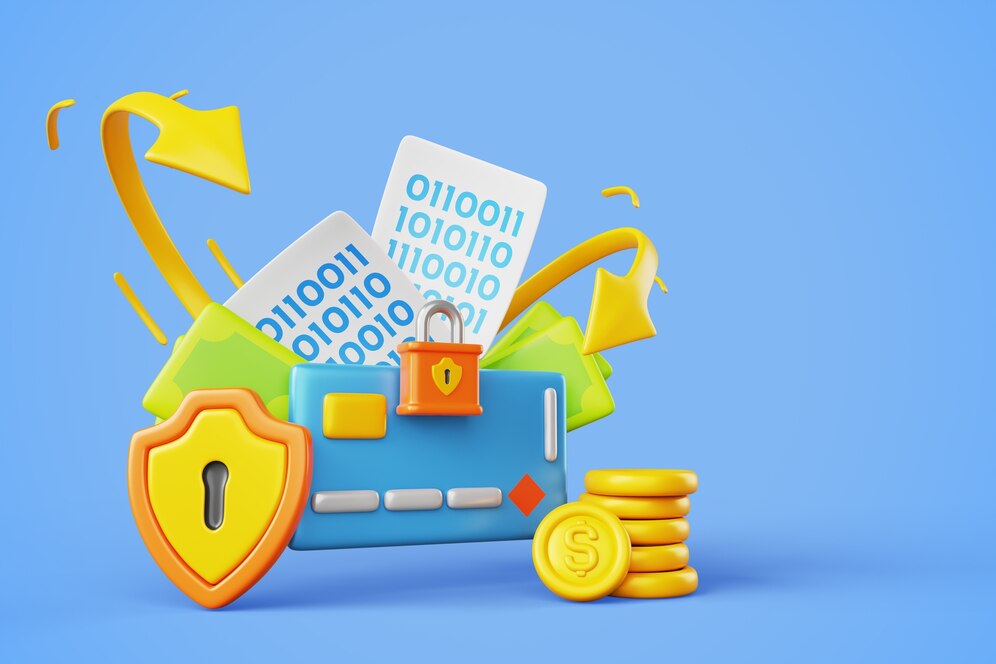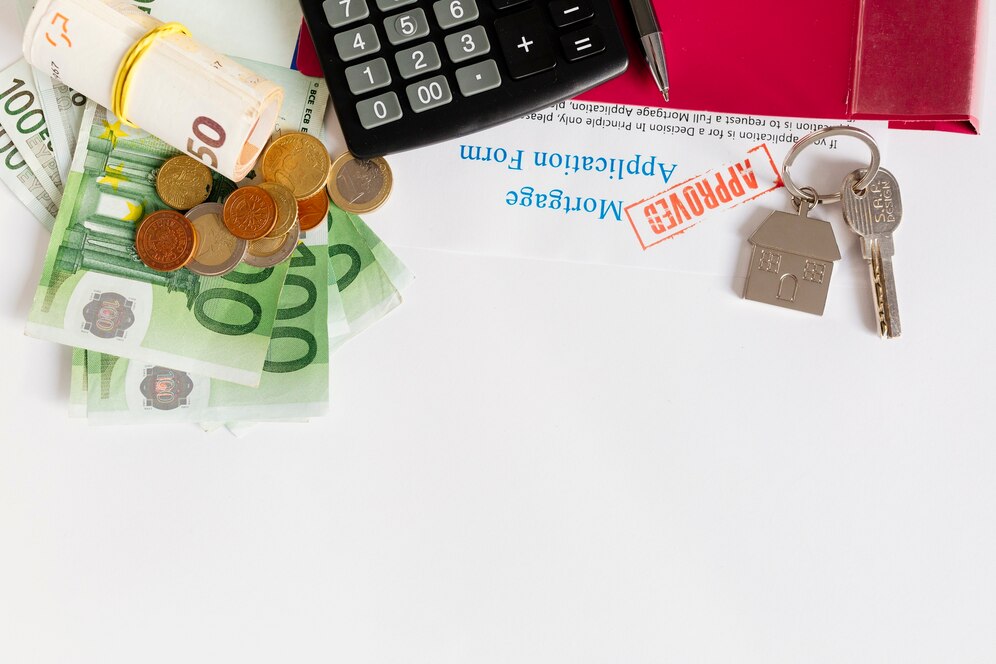Money Protection Insurance: Comprehensive Coverage for Your Financial Assets
It's more important than ever to protect your money in a world that is becoming less stable. It's possible to lose money to theft, fraud, or other unplanned events, whether you own a business, have a lot of savings, or deal with large amounts of money on a daily basis. This is where money safety insurance comes in handy. With its wide range of coverages, money protection insurance is meant to protect your finances from a wide range of risks, so you are not left open to harm when bad things happen.
What is Money Protection Insurance?
When you have money protection insurance, you're covered if you lose, have your money stolen, or have it destroyed in some other way. Cash, checks, stocks, and even digital currency can be considered this. Money protection insurance is meant to give people peace of mind by making sure that if they lose money, they will be paid back for the value of that money. This kind of insurance is especially helpful for businesses and people who handle or store a lot of money on a daily basis. However, anyone who wants to protect their money can benefit from it.
Why Money Protection Insurance is Essential
It's impossible to say enough good things about money protection insurance. Losses of money can happen out of the blue and in many ways, from theft to hacking. Without the right protection, these losses can be very bad for both businesses and people. It's important to have money security insurance because it gives you a safety net that can help you get back on your feet quickly after a financial setback. This insurance helps keep your finances stable even when bad things happen by covering the loss of money in different ways.
Types of Money Covered by Money Protection Insurance
Money protection insurance typically covers several forms of money, including:
- Physical Cash: Coverage for physical currency stored on-site, in safes, or during transportation.
- Checks: Protection for checks that have been issued but not yet deposited.
- Securities: Coverage for stocks, bonds, and other financial instruments.
- Digital Currency: Increasingly, policies are offering coverage for the theft of digital currencies like Bitcoin.
- Bank Drafts and Money Orders: Protection against loss or theft of these financial instruments.
Each type of money has its own risks, and a comprehensive money protection insurance policy will provide coverage for all of these forms, ensuring that you are fully protected against potential losses.
Key Benefits of Money Protection Insurance
Money protection insurance offers numerous benefits that make it a crucial component of any financial protection strategy. Here are some of the key benefits:
1. Financial Security
The main benefit of money protection insurance is that it protects your finances. The insurance covers you if you lose money, whether it's because of theft, scams, or something else. It gets you the money back. This safety against losing money is very helpful, especially for companies that need a steady flow of cash to run.
2. Peace of Mind
When you know your money is safe, you can focus on what you're doing without thinking about losing it all the time. This peace of mind is very important for people who have a lot of money and for business owners who deal with big amounts of money every day.
3. Comprehensive Coverage
A lot of different kinds of money and a lot of different risks can be covered by money security insurance. A well-thought-out insurance will protect you from all hazards, whether you need it for physical theft, cybercrime, or fraud.
4. Quick Recovery
If something bad happens and you lose money, money protection insurance will make sure you can get back on your feet quickly. You can replace the money you lost, keep your business running, and avoid long-term financial damage with the insurance payment.
5. Legal Protection
Losses of money can sometimes lead to lawsuits, especially if they involve a third party or are the result of carelessness. Legal security can be provided by money protection insurance, which pays for legal fees and settlements related to the loss. This way, you won't have to worry about the cost of legal challenges on top of the loss itself.
Common Risks Covered by Money Protection Insurance
You can lose your money in a lot of different ways, and money safety insurance is there to protect you. These are some of the most common risks that this kind of insurance covers:
1. Theft and Burglary
Theft is one of the most regular risks that come with money. If your business is broken into, your belongings are stolen while being transported, or an employee steals from you, money protection insurance will cover these losses and make sure you don't have to pay for them yourself.
2. Fraud and Forgery
These days, there are big risks of financial scams and forgery. This can include fake checks, fake signatures, or bank payments that aren't supposed to happen. It is possible for money protection insurance to cover losses caused by these kinds of fraud, adding an extra layer of safety to your money.
3. Cybercrime
Cybercrime has become a lot more likely as more financial activities and deals move online. Cyber crime, like hacking, phishing, and getting into financial accounts without permission, is becoming a bigger problem. Money security insurance can cover losses that happen online, like digital currency being stolen or electronic transfers being made without permission.
4. Fire and Natural Disasters
In the event of a fire or natural tragedy, like an earthquake or flood, cash and financial records can be lost. If you lose money because of these things, money protection insurance can cover it and make sure you get it back.
5. Accidental Loss or Damage
Accidents do happen, and money can get lost or damaged by accident. Things like water damage to cash or physical damage to checks could fall into this category. Accidental loses like these can be covered by money protection insurance, which can help you get the money back.
Who Needs Money Protection Insurance?
Money protection insurance is valuable for a wide range of individuals and organizations, including:
1. Businesses
There is a high chance that businesses that deal with a lot of cash, checks, or digital money will lose money. As a key part of their risk management plan, stores, restaurants, service providers, and banks should all think about getting money protection insurance.
2. Financial Institutions
Money protection insurance makes sense for banks, credit unions, and other financial organisations. There are many threats to these businesses that deal with and store large amounts of money, such as theft, fraud, and hacking.
3. Individuals with High-Value Assets
People who have a lot of money, whether it's in cash, stocks, bonds, or digital currency, should think about getting money protection insurance. This is very important for people who don't usually keep their savings in banks or other financial institutions.
4. Non-Profit Organizations
Insurance that protects money also helps non-profits that take gifts or other forms of financial contributions. This insurance can protect against losing money because of theft or scams, keeping the group's money safe.
5. Small Businesses and Startups
Small businesses and new businesses often have limited cash flow, which makes them more likely to lose money. Money protection insurance can help these businesses get back on their feet quickly after a sudden loss of money.
How to Choose the Right Money Protection Insurance Policy
You need to carefully think about your wants and risks in order to choose the right money protection insurance policy. When picking a contract, here are some important things to keep in mind:
1. Assess Your Risk Profile
Before you buy money protection insurance, you should figure out how much danger you are willing to take. Think about the kinds of money you deal with, where and how you store it, and the threats you might face. For example, a store might need more coverage for cash that is kept on the premises, while a bank might need defence against cybercrime.
2. Evaluate Coverage Options
There are differences between different types of money safety insurance. Check out the different types of coverage to make sure that the insurance you pick will protect all of your money and all of the possible risks. Look for policies that cover both digital and real theft, as well as theft by employees and money that is in transit.
3. Understand Policy Limits and Exclusions
There are limits and exclusions in every insurance policy, and you should know what they are before you buy one. Exclusions are events or types of losses that are not covered by the policy. Policy limits are the most the insurance company will pay out on a claim. Make sure that the insurance limits are high enough to meet your needs and that you know about any exclusions that could affect your coverage.
4. Work with a Reputable Insurance Provider
It is very important to choose an insurance company with a good reputation if you want to get the coverage and help you need in case of a loss. Look for money protection insurance companies that have a good track record and good reviews from customers. Working with a provider with a lot of experience can also help you understand your insurance policy better and make smart choices about your benefits.
5. Consider Additional Endorsements
Depending on your needs, you might want to think about adding more coverage to your money protection insurance. Because of this, if you deal with a lot of digital currency, you might want to add cyber theft coverage to your insurance. In the same way, companies that lose a lot of employees might benefit from a recommendation that makes them less likely to steal.
Steps to Take After a Financial Loss
In the unfortunate event that you experience a financial loss, taking the right steps immediately can help ensure a smooth claims process and a quicker recovery. Here are the steps you should take:
1. Report the Loss
When you find out you've lost money, the first thing you should do is tell it to the right people. This could include the police in your area, your insurance company, and, if there is a cyber theft, your IT staff. It's important to report the loss right away so that the event can be recorded and the claims process can begin.
2. Secure Evidence
Get as many pieces of proof as you can about the loss. This could be video from a security camera, statements from witnesses, bank records, or anything else that can back up your claim. Giving lots of proof will speed up the claims process and make it more likely that the claim will be accepted.
3. Contact Your Insurance Provider
As soon as possible, tell your insurance company about the loss. Tell them all the important information, like when, where, and what kind of thing was lost, along with any proof you have. Your insurance company will walk you through the claims process and let you know what else they need from you.
4. Mitigate Further Losses
Take action right away to stop any more loses. This could mean making your building safer, updating your security measures, or putting in place tighter financial controls. Through cautious actions, you can lower the chance of further losses and show your insurance company that you are serious about the situation.
5. Follow Up on Your Claim
Once you've filed your claim, keep in touch with your insurance company to make sure the process is going along. Keep careful records of all conversations and any extra information the insurance company asks for. Staying involved in the claims process can help make sure that the problem is solved quickly and that you get your money back faster.
The Future of Money Protection Insurance
It is important to keep in mind that money security insurance changes along with the financial world. As digital money, online banking, and other financial tools become more popular, they bring with them new risks and problems. Insurance companies are responding to these changes by giving customers more choices for coverage that covers more things and in more depth.
1. Coverage for Digital Assets
There are more and more digital assets out there, and money protection insurance is growing to cover digital currencies like Bitcoin and other types of electronic money. This is very important because hacking is becoming a bigger threat to money safety.
2. Increased Focus on Cybersecurity
Because hacking is becoming more dangerous, money protection insurance is putting more focus on cybersecurity. Losses caused by hacking, phishing, and other scams are becoming more and more covered by policies. Risk management services are also being offered by insurers to help companies and individuals improve their cybersecurity and lower the risk of losing money.
3. Tailored Policies for Specific Industries
Insurance companies are making money protection plans that are more specifically designed for certain businesses. One example is that stores, banks, and non-profits may all face different risks that need different types of insurance. Insurers can better meet the needs of different types of businesses and organisations by giving policies that are tailored to each industry.
4. Integration with Other Financial Protections
Other types of financial protection, like general liability insurance, business interruption insurance, and internet liability insurance, are being added to money protection insurance more and more. Businesses and people are fully protected against a wide range of risks with this all-around method to financial security.
Conclusion
Getting money protection insurance is one of the best ways to protect your money from many different types of risks. As a business owner, a person with significant financial assets, or someone who deals with large amounts of money on a daily basis, this type of insurance is very helpful. Money security insurance protects you against theft, fraud, cybercrime, and other possible losses. This way, you can quickly get back on your feet after a financial setback and keep your finances stable. Money protection insurance will stay an important part of any comprehensive risk management strategy, even as the financial world changes.

 1 tahun yang lalu
1 tahun yang lalu








 English (US) ·
English (US) ·  Indonesian (ID) ·
Indonesian (ID) ·